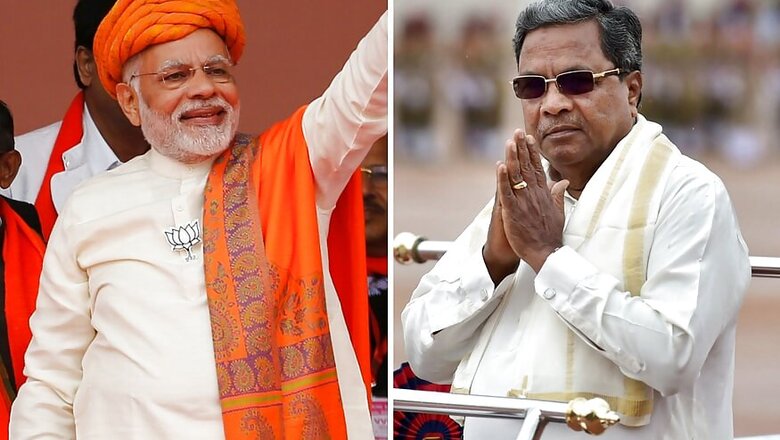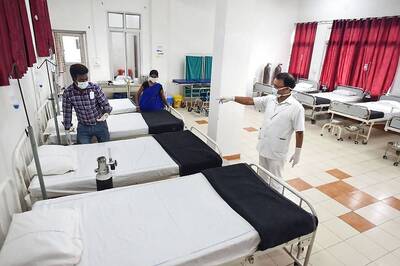
views
New Delhi: Former Karnataka CM BS Yeddyurappa is BJP’s chief ministerial candidate in the upcoming assembly elections. Both Prime Minster Narendra Modi and party president Amit Shah have endorsed his candidature on more than one occasion. But as the poll pitch reaches a crescendo, there are signs that the BJP may be seeking votes in the name of Modi instead.
Yeddyurappa, the 74-year veteran state BJP president, is fast becoming an undertone in a high-decibel battle. Amit Shah, in an interaction with booth workers at Dakshin Kannada district, is reported to have urged party workers to “just look at the Lotus symbol (the party’s symbol) and Modi’s photo” while seeking votes.
This alteration in the party’s strategy to make Karnataka elections a Modi vs Siddaramaiah contest may be driven by ground-level feedback and inputs from other sources. The party may have made an assessment of its prospects if these elections were made a direct contest between the incumbent CM and the BJP’s official CM candidate.
This inflection in BJP’s campaign strategy makes for an interesting analysis purely from the standpoint of political communication for electoral mobilisation.
In the recent past, there have been enough indications that the BJP in general and the Prime Minister in particular are making Karnataka a personality-centric fight between Modi and the Karnataka CM. A section of the Prime Minister’s intervention in Parliament on presidential address in the face of constant heckling by Congress MPs was directed at Siddaramaiah.
The Chief Minister, it seems, is also enjoying this verbal duel. He’s quick and sharp in engaging the Prime Minister.
Among the current lot, Modi remains the BJP’s biggest vote catcher. Since assuming power at the Centre in 2014, the BJP has more often than not sought to build its campaign in provincial elections around the Prime Minister as the central character. On most occasions, this strategy has paid rich electoral dividends.
Two notable exclusions are Delhi and Bihar assembly elections in 2015.
There were a lot of similarities in the two election campaigns:
— Opposition in both instances was led by a strong provincial leader pitted against the Prime Minister
— The provincial leader was leading a non-Congress party
— There was no corruption taint on the leader
— By the end of the campaign, the elections had turned broadly into a bi-polar contest.
Both Arvind Kejriwal and Nitish Kumar were able to convince the voters that the elections were being held to elect a Chief Minister who would cater to local needs, and not for the Prime Minister of the country.
In the build-up to the Karnataka elections, Siddaramaiah has played happily along with the BJP’s attempt to make it a CM vs PM contest. He’s quite consciously weaved a sub-nationalist undertone to his poll narrative. The only difference is that Siddaramaiah, like Tarun Gogoi and quite unlike Kejriwal and Nitish, is not a regional satrap but a Congress CM leading the party campaign.
All this notwithstanding, every election is a unique exercise in socio-political-economic churning.
Many believe the JD(S)-BSP combine may turn the contest tri-polar leading to a hung assembly. In the last five years, very few states have done that. Not even Punjab last year where the contest was genuinely multi-cornered between the AAP, the Congress and the Akalis.
Will Karnataka be any different?

















Comments
0 comment